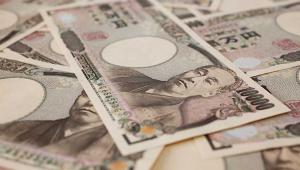The figures forecast an annualised growth rate of 1.7% for the world’s third-largest economy.
However they are unlikely to bolster confidence in prime minister Shinzō Abe’s push for growth. Rather, the explanation is likely to lie in an extra day (added by a leap year), which drove more consumer spending and, in turn, better-than-expected GDP figures.
Despite this, chief cabinet secretary Yoshihide Suga told reporters that consumer spending – behind around 60% of GDP in Japan – remains weak, according to the Japan Times.
He said this was due to the legacy of a sales tax hike in 2014, which is seen as the main cause of Japan’s recession that year.
Observers speculate today’s figures will convince Abe to postpone a further planned increase in sales tax from 8% to 10%.
Keith Wade, chief economist at Schroders, agreed with suggestions that the growth figures are likely to tip the decision in favour of delay, and said he expects Abe to announce his plans at the next G7 meeting, which Japan is hosting later this month.
If Abe opts to delay, this would avoid hitting the economy with another round of fiscal belt tightening, Wade said.
Despite the prime ministers efforts to kickstart growth, the economy remains in a fragile condition.
Figures for the last quarter of 2015 registered a 1.7% contraction in the economy, worse than the expected 1.1%.
Wade said: “Whilst it is good news that [Japan’s] economy avoided the recession some had feared, the figures were boosted by an extra spending day as a result of the leap year. Adjusting for this takes growth down to a 0.5% annual rate which still avoids recession but leaves activity at a lower level than was seen in Q3 last year.”
A central element of Abe’s plan was a concerted drive to ease monetary policy by the Bank of Japan.
In January of this year, the BoJ stunned markets with a move to negative interests rates in what was seen as a last-ditch effort to salvage Abe’s economic strategy.
Suga said today that the policy was, as intended, making progress in tackling years of deflation.
But Shotaro Kugo, an economist at the Daiwa Institute of Research, told Agence France-Press, today’s figures suggest it is having little impact, with private investment in decline.
Last month, the Japan government approved the addition of a further $7.1bn to the budget in order to respond to a series of strong earthquakes that shook the country and forced factories to close in the country’s south.
The International Monetary Fund expects Japan’s economy to grow by 0.5% this year before returning to a negative growth rate of 0.1% in 2017.













